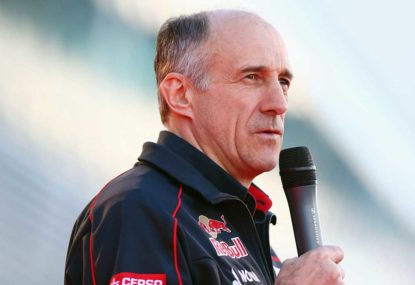Fernando Alonso's future is secure, now it's Lance Stroll's time to deliver for Aston Martin
It’s time that serious questions are asked of his Lance Stroll and his future in the team.

Yes, you may have heard, Formula One is going to Azerbaijan. Notwithstanding the pinch of salt with which all new entries on the F1 calendar must be taken, the streets of Baku will be alive with the sound of the world’s biggest motorsport on July 17, 2016.
If your first question was “where?”, fear not, for Azerbaijan’s motorsport footprint is a small one. Its most high profile race was a 2013 round of the FIA GT Championship.
Its international sport profile is similarly small, which made it a big deal when the Caucasian country hosted the first European Games this year, despite it only tenuously being part of Europe.
It is in this claim to fame that also exists one of the biggest concerns for Formula One’s travelling circus. If the European Games themselves hadn’t registered on your radar, perhaps the controversy over press freedom and media visas will have appeared on your news feed.
But then it would hardly be the first major sporting event to attract controversy for one reason or another – you need only consider the travails of FIFA and Qatar to know that Formula One is not alone in this respect – and it is in any case not the purpose of this column to attempt to judge the merits of a nation to engage with the world.
Indeed, if we want to consider political controversy in the sport context, the FIA statues explicitly state that motorsport sanctioned by the governing body will not engage in discriminatory politics.
All that aside, with Azerbaijan being a small, relatively unknown country, it would be unfair to cast judgement without completing any detailed research – essentially, don’t knock it until you’ve tried it.
But that’s not to say that there aren’t real concerns, and that those concerns aren’t shared across the paddock and wider observing world.
At the Hungarian Grand Prix, the first race run since the FIA ratified the 2016 calendar on July 10, Toro Rosso team principal Franz Tost was asked for his view on the inaugural race in Baku – officially the ‘European Grand Prix’ – and whether it was right for his sport to set up there.
“[It is] absolutely correct,” he said confidently. “Formula One is sport. We go there to entertain. We do not go there for any political reasons.
“The main target for Formula One as a sport is to go there, to entertain the people, to bring a good show, and to have hopefully a good race.
“We can’t be involved in the political topics in those countries or in any country which are on the list.”
He pushed on, this time prompted by a question about the possibility of Formula One journalists being denied visas to cover the sport for what will be Round 10 of next year’s season.
“To be honest, I don’t care about this,” he retorted. “It’s your problem how you get the visa.”
For sure as a team principal it isn’t his job to worry about press visas – but as a public representative of the sport, his airy dismissal of the entire subject is questionable.
It is absolutely the responsibility of the sport – and while the FIA and Formula One Management ultimately make the decisions, the teams themselves must also accept this as representatives of the sport – to engage with what is undoubtedly an issue.
Notwithstanding the FIA and FOM’s present issues with what each believes ought comprise its travelling media pack, it must not be forgotten that the press – and a healthy and fully functioning press at that – is integral to the sport.
To disregard the media – as it would be to disregard marshals, stewards, race control, the FIA, event promoters, the fans, or any other non-racing personnel that constitute the sport – is enormous folly and a represents a gross misunderstanding of how it is the sport ticks as a whole.
Freedom of the press, concerning to many for one reason or another, is something sport will have to face sooner rather than later. But then it is hardly the first and is unlikely to be the last, nor the biggest, issue to confront Formula One, particularly as it pushes into new territories.
This wouldn’t be a problem if the sport were prepared to engage legitimately in a discussion about its decisions and the concerns of all parts of its entourage.
Burying its head in the sand, as Franz Tost’s response to the issue suggests is the case, does nothing to help the sport or its international standing and image.